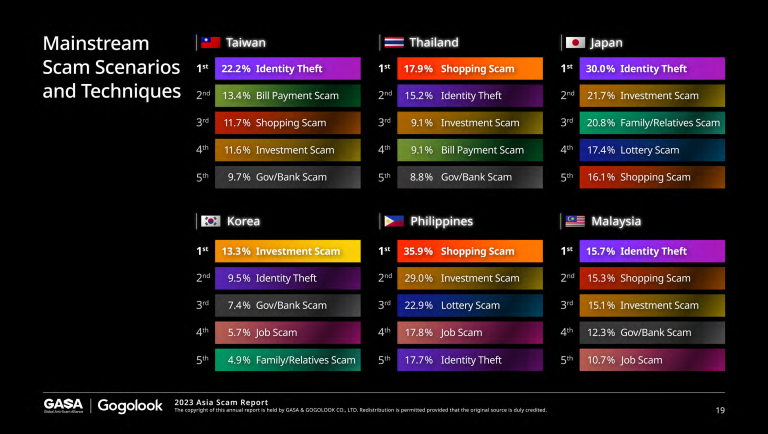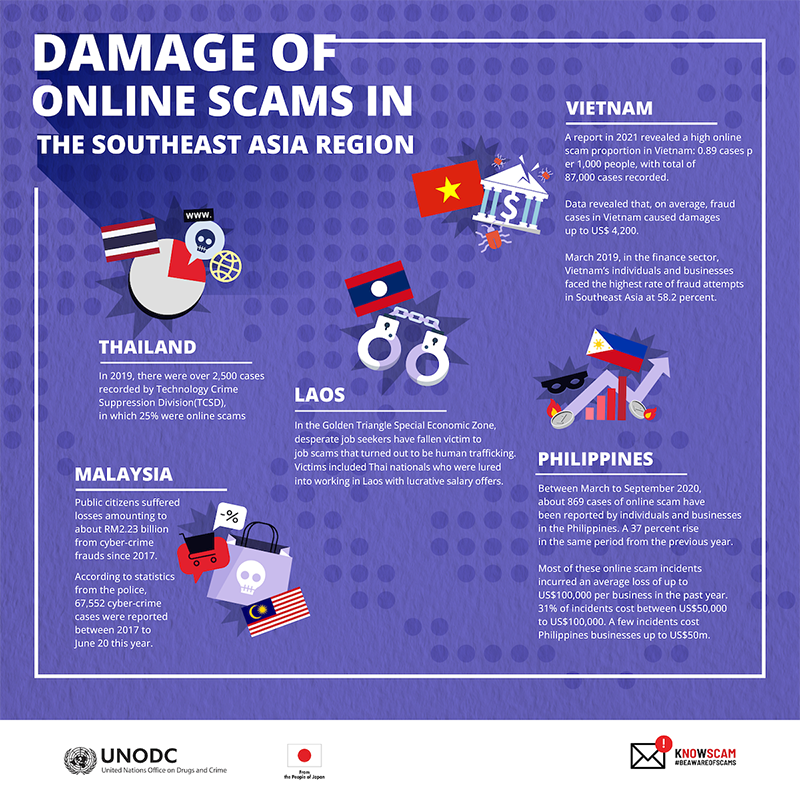Filipinos are “too quick to respond” to scammers, a study says on the rise of scam rates in the region.
The Cybercrime Investigation and Coordinating Center (CICC) unveiled this study in time for the holiday season, citing the 2023 Asia Scam Report about the top scams across 11 countries in Asia.
The report was published by the Global Anti-Scam Alliance (GASA) and the TrustTech leading provider Gogolook during the first-ever Anti-Scam Asia Summit (ASAS) in Taipei, Taiwan last November.
Here, it was shown that the main reason why Filipinos fall victim to different types of fraudulent schemes is “responding too quickly to the scammers’ demands.”
Only a few local respondents, however, said that they fail “to recognize scams,” thus making them vulnerable targets.

According to the report, the top reasons for becoming scam victims in the Philippines are:
- Responding too quickly to the scammers’ demands at 24.8%
- Choosing to take a risk despite uncertainty about the risk at 21.1%
- Being enticed by offered incentives at 20.5%
- Over-trusting friends or family members at 13.6%
- Lack of sufficient knowledge to identify scams at 8.5%
- Failure to recognize scams at 4.2%
The most common con in the Philippines, meanwhile, is shopping scams at 35.9%.
The rest are:
- Investment scam at 29%
- Lottery scam at 22.9%
- Job scam at 17.8%
- Identity theft at 17.7%

In line with these findings, CICC Executive Director Alexander K. Ramos advised the public to be cautious in Christmas shopping, especially online.
“Based on our observation, shopping scams usually increase during the Christmas season. Scammers take advantage of the high volume of online shopping and people’s vulnerability during this period,” Ramos said.
CICC and the Department of Information and Communications Technology (DICT) also issued this advisory on shopping scams via Facebook.
“The Cybercrime Investigation and Coordinating Center is advising the public to be extra careful in doing their Christmas shopping online as the shopping scam rate in the country reached 35.9 percent which is the highest among 11 Asian countries surveyed,” it said.
The CICC also urged those who became victims of any type of scam to report to the government’s anti-scam hotline 1326.
Fueled by deepfakes, artificial intelligence
The 2023 Asia Report revealed that identity theft is most common concern among the respondents.
The rise of deepfakes and AI technologies also “makes it more challenging for people to discern the authenticity of scams.”
In a statement, Jeff Kuo, CEO and co-founder of Gogolook, said that the findings in this report showed the need for a “coordinated response” to combat fraud.
“The 2023 Asia Scam Report reveals an unfortunate surge in digital scams across the region, underscoring the urgent need for a coordinated response from all stakeholders, including law enforcement, businesses, and the public,” he said.
Damage of online scams
The United Nations Office on Drugs and Crime (UNODC) also previously released a report showing that 31% of scam incidents in the Philippines incurred a loss between $50,000 (P2,778,550) and $100,000 (P5,557,100).
UNODC also recorded cases of some businesses losing up to a staggering $50 million (approximately P2.7 billion).
According to its date, there was a 37% increase of scams recorded during the height of the COVID-19 pandemic—from March to September 2020. This was compared to the same period in the previous year.

Across Southeast Asia, meanwhile, the organization also observed common practices of cybercriminals across Southeast Asian countries. They are:
- Romance scams
- Fake charities
- Human trafficking disguised as legitimate job offers
- Pig butchering scam
Details about the nature of online scams and other fraudulent activities can be explored via the website “Know Scam” here Scam (unodc.org).

